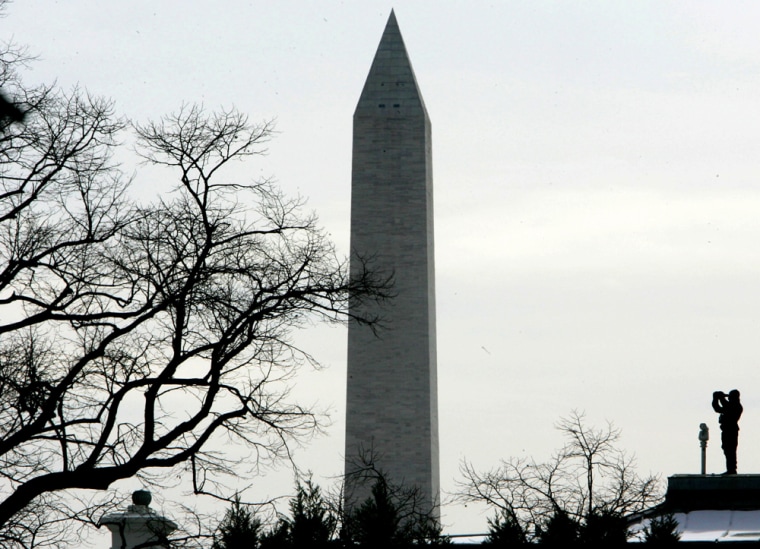Federal law enforcement and security officials said Thursday they received no new information suggesting any threat from terrorists to President Bush’s inauguration and reported no initial security problems.
“Everything is quiet,” FBI spokeswoman Debra Weierman said early Thursday. Security remained tight into the afternoon, when a presidential parade was set to run between the Capitol and the White House.
The tight security did produce long lines of people trying to get into the Capitol complex for the inauguration. Some people reported waits of between 20 and 45 minutes. Several streets were closed around the Capitol, forcing inaugural guests, onlookers, Capitol staffers and Capitol workers to try to squeeze through the same security gates.
Officials reported an uneventful early morning. No suspicious packages were reported, they said, which is surprising given that four years ago several reports had been made by that time.
Still, agents deployed just about everything they have.
Along the Pennsylvania Avenue parade route, manhole covers are now welded shut.
Underground, bomb-sniffing dogs checked subway trains. Detectors monitored the air for poisons. And extra police watched for passengers who fit a threat profile.
"They'll have technology with them that allows them to check a device, unattended package or suspicious package to see if it has explosives," said Metro Transit Police Chief Polly Hanson.
100 blocks closed off
On the streets, more than seven miles of barricades closed off 100 blocks to traffic. The concern: car or truck bombs.
"You get a clear red flag if something is moving within the zones that we've established that shouldn't be in those zones," said FBI agent Michael Mason.
There also was extra security at event hotels, even guarding the air intakes.
Overhead, snipers on rooftops and scores of cameras watched the crowds. Military jets and government helicopters enforced an expanded no-fly zone.
And U.S. air marshals were posted on nearly every commercial flight into Washington's three airports.
The Secret Service was in charge, working from a command center 25 miles outside of Washington — located there so it could keep going in the event of an attack in the city.
While security planning began more than a year ago, thousands of military personnel stood by all around Washington to respond to the unanticipated.
Government planners even plotted out how radiation or toxins would spread in a catastrophic attack.
High-tech command post
The Associated Press reported that backup was called in from around the country to staff the command post, which has 120 work stations and giant video screens tied to cameras monitoring the streets.
Personnel monitored downtown Washington streets via camera, keep track of aerial surveillance flights and checking sensors scanning for evidence of deadly biological or chemical agents.
“It entails obviously a large contingent of law enforcement that is coming in from around the country to support our efforts here,” Secret Service chief Ralph Basham said earlier this week. “We are applying every technology that’s available to us.”
Security facts and figures
- The city of Washington, D.C., has estimated its security costs at $17.3 million.
- Bar codes on invitations to inaugurations events make it easier to determine whether someone should have access to an event — part of a plan to check everyone who attends the swearing-in, parade and balls.
- Some 13,000 troops and other law enforcement agents are providing security. The FBI alone has about 1,500 agents working the inaugural events.
